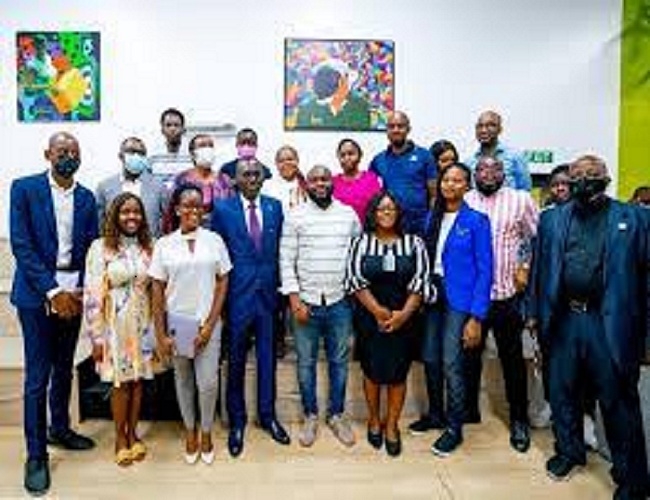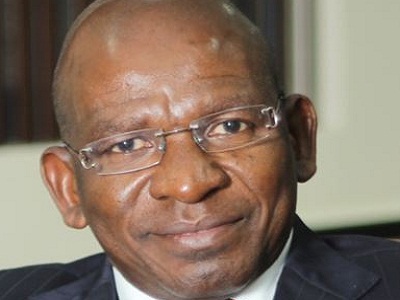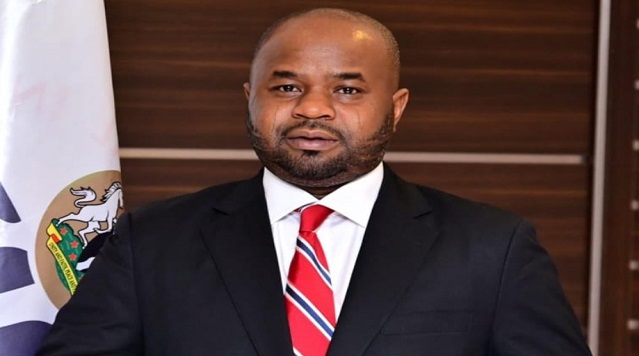News
Lagos Set to Build West Africa’s Biggest Tech Hub in Yaba

In a bid to ramp up its intervention in provision of technology infrastructure and expand the tech space to accommodate more startups, Lagos State Government is set to embark on the construction of the biggest technology cluster in West Africa.

The tech ecosystem, which will be sited in Yaba, is being developed by the State Government in collaboration with Facebook and Google.
Governor Babajide Sanwo-Olu spoke of the development on Wednesday when he toured two major innovation and technology hubs within the State.
Accompanied by members of the State’s Executive Council, including Commissioner for Science and Technology, Mr. Hakeem Fahm, and Special Adviser on Innovation and Technology, Olatunbosun Alake, the Governor visited Venia Hub in Lekki and Impact Hub in Ikoyi, meeting scores of startups in the ecosystems for a roundtable discussion on expanding funding opportunities and infrastructure development.
Sanwo-Olu said the Yaba Technology Cluster, called K.I.T.E., would be a free zone that would allow the growth of funding and financing for innovative ideas generated by entrepreneurs in tech industry and FinTech space, adding that the ecosystem would also offer free labs for the use of startups to take their innovations to from ideation to the next level.
K.I.T.E. is an acronym for Knowledge, Innovation, Technology and Entrepreneurship.
The Governor described technology as “the new oil” for Lagos – Africa’s largest megacity – to exponentially generate wealth and jobs for its young population, while also leveraging it in raising the status of State to attain Fourth Industrial Revolution.
He said: “Technology is the new oil and the basic element for the Fourth Industrial Revolution globally. As a State with a massive population of young people, we need to play major role in the development of technology, which is an enabler to leapfrog into rapid socio-economic growth. We take technology as an important deliverable in our Government’s development agenda.
“For us to make lasting impact in tech industry, we said to ourselves we needed to build the infrastructure to support sector. We are building a tech campus on a 22,000 square meters land in Yaba, which we christen K.I.T.E. We are working with global brands in the tech space, such as Facebook and Google, to deliver this important technology hub.
“We are currently laying 3,000 kilometres metropolitan fibre optic cables across the State to drop reliable and fast Internet connectivity in homes and work places. These are part of the infrastructure required as backbone for the tech industry to flourish and empower our young people in the space to take their businesses and ideas to the level of stability.
Aside the infrastructural initiatives, Sanwo-Olu said the State Government had been providing support for startups through the Lagos State Employment Trust Fund (LSETF) and Lagos State Science Research and Innovation Council (LASRIC), which provide grant opportunities for innovators and tech researchers.
The Governor disclosed that two out of the 20 start-ups ideas supported through LASRIC last year had secured patents for their innovations and ready to transform into fully-fledged businesses that would create jobs.
Sanwo-Olu said the State Government’s intervention in the technology space was about creating opportunities for the future and providing platforms to make start-up businesses thrive.
He said: “The visit to your ecosystems today is for you to be assured that this Government is not sitting back in taking steps to ease access. We fully understand the role which technology plays in our lives and how technology is important to any society that wants to be relevant in coming decades. We are happy to be building the capability for Lagos, so that we can compete with other developed cities in the world.”
The Governor had a roundtable discussion with some of the startups to communicate the State’s effort and how better the Government could properly channel its interventions in the sector.
Some of the startups had the opportunity to present their business models and innovative solutions to the Government’s team. The engagement gave the Governor and his team the possible areas of intervention.
LSETF Executive Secretary, Mrs. Teju Abisoye, said the agency had been providing support for over 38 partner hubs across Local Government Areas (LGAs) and Local Council Development Areas (LCDAs) in the State, stressing that the objective of the funding was to support startups from idea to exit stages.
Venia Hub is an ecosystem housing Flutterwave and 100 other tech start-up companies. Impact Hub also has scores of startups operating in its ecosystem.
News
Trump Says He Made no Mistake Sharing Video Depicting Obamas as Apes

United States President Donald Trump has said he made no mistake for a video briefly shared on his official Truth Social account that depicted former President Barack Obama and former First Lady Michelle Obama as apes.

Former President Barack Obama
Speaking late Friday to reporters accompanying him aboard Air Force One, Trump insisted he made no mistake by sharing the video and does not need to apologise.
“I didn’t make a mistake,” he said.
Trump explained that he did not watch the entire clip before it was posted.
“I didn’t see the whole thing. I looked at the first part, and it was really about voter fraud in the machines, how crooked it is, how disgusting it is.
“Then I gave it to the people. Generally, they look at the whole thing. But I guess somebody didn’t,” he said.
When asked directly whether he condemned the video’s content, Trump replied, “Of course I do.”
The video, which was posted late Thursday, pushed a conspiracy theory about voting machines used during the 2020 election and included a racist depiction of the Obamas.
It remained on Trump’s Truth Social account for about 12 hours before being deleted on Friday morning, following widespread bipartisan calls for its removal.
The White House initially defended the post in an emailed statement to reporters on Friday morning by Karoline Leavitt, Press Secretary,.
She said, “This is from an internet meme video depicting President Trump as the King of the Jungle and Democrats as characters from The Lion King.”
Leavitt added, “Please stop the fake outrage and report on something today that actually matters to the American public.”
Hours after the statement was issued, the video was removed from Trump’s official Truth Social account.
News
Orya, Ex-NEXIM MD Jailed 490 Years for N2.4Bn Fraud

Robert Orya, former managing director, Nigerian Export-Import Bank, (NEXIM), has been sentenced to a cumulative 490 years’ imprisonment over a N2.4 billion fraud, following his conviction by a Federal Capital Territory (FCT) High Court in Abuja.

The conviction was secured by the Economic and Financial Crimes Commission (EFCC). Justice F. E. Messiri sentenced Orya to 10 years’ imprisonment on each of the 49 counts brought against him, with the sentences running cumulatively.
Orya, who headed NEXIM Bank between 2011 and 2016, was prosecuted by Samuel Ugwuegbulam, EFCC counsel.
The anti-graft agency accused him of fraudulently diverting funds belonging to the bank—charges the court held were proven beyond reasonable doubt.
Delivering judgment, Justice Messiri ruled that the prosecution successfully established its case, finding the former bank chief guilty on all 49 counts of fraud.
The conviction has been widely linked to the renewed momentum within the EFCC under Mr. Ola Olukoyede, its Chairman, whose leadership has seen a reinvigoration of the agency’s resolve to pursue high-profile corruption cases to their logical conclusion.
Since assuming office, Olukoyede has repeatedly vowed that no individual, regardless of status or past influence, would be shielded from accountability.
Under his stewardship, the EFCC has intensified the prosecution of complex financial crimes, particularly cases involving public institutions and large-scale diversion of funds.
Observers say the sentencing of a former chief executive of a government-owned bank underscores the EFCC’s determination to restore public confidence in the anti-corruption fight and sends a strong signal that financial misconduct will attract severe consequences.
The judgment is regarded as one of the most significant convictions secured against a former banking chief in recent years, reinforcing the agency’s resolve to clamp down on economic crimes within Nigeria’s financial sector.
During his tenure at NEXIM Bank, Orya was initially credited with efforts to reposition the institution to support non-oil exports and improve its financial standing after earlier setbacks.
However, his administration later became enmeshed in controversies, including allegations of loan disbursement irregularities and procedural abuses.
The case, which culminated in Thursday’s judgment, centred on findings that Orya diverted public funds estimated at N2.4 billion—offences that ultimately led to his conviction and lengthy prison sentence.
News
NRS Chairman Outlines Ways Nigeria can Move from Potential to Economic Prosperity

Zacch Adedeji, chairman of the Nigeria Revenue Service (NRS) has called for a paradigm shift in dependence on raw material exports to one that embrace ideas, innovation and the production of complex products as a pathway to sustainable economic growth and national prosperity.

Adedeji made the submission while delivering the maiden distinguished personality lecture of the Faculty of Administration, Obafemi Awolowo University (OAU), Ile-Ife, Osun State, on Thursday.
A statement by his Special Adviser on Media, Dare Adekanmbi, said Adedeji, in the lecture entitled, ‘From Potential to Prosperity: Export-led Economy’, stressed the need to rethink growth through the lens of complexity by not just producing more of the same stuff.
He lamented that Nigeria possesses a high-tech oil sector and low-productivity informal sector as well as lacking “the vibrant, labour-absorbing industrial base that serves as a bridge to higher complexity.”
The NRS boss stated that Nigeria witnessed stagnation in its exportation drive for three decades between 1998 to 2023, and only added six new products in its export basket list between 2008 and 2023.
“Because of our current position, the Harvard Atlas concluded that we are positioned to take advantage of very few opportunities to diversify using what we already know.”
Adedeji urged Nigeria to learn from the world by comparative study of success and failure like Vietnam, Bangladesh, Indonesia, South Africa and Brazil.
“We are not just looking at numbers in a vacuum; we are looking at the strategic choices made by nations like Vietnam, Indonesia, Bangladesh, Brazil, and South Africa over the same twenty-five-year period. While there are many ways to under perform, the path to success is remarkably consistent: it is defined by a clear strategy to build economic complexity.
“When we put these stories together, the divergence is clear. Vietnam used global trade to build a resilient, complex economy, while the others remained dependent on natural resources or a single low-tech niche.
“There are three big lessons here for us in Nigeria as we think about our roadmap. First, avoiding the resource curse is necessary, but it is not enough. You need a proactive strategy to build productive capabilities.
“Vietnam’s success came from integrating itself into Global Value Chains (GVCs). They positioned themselves as the assembly hub for the world’s electronics, importing high-tech parts and exporting finished products.
“This allowed them to “borrow” technology and management skills from abroad to build their own know-how.
“Nigeria, on the other hand, remains a supplier of raw materials to these chains, not an active participant within them. We must realise that productive capabilities are not permanent. The examples of South Africa and Brazil show us that you can actually lose your industrial edge if you are not careful. Over-reliance on the easy path of resource extraction creates economic and political incentives that crowd out the difficult, long-term work of building an industrial base.”
He added that for Nigeria, which is at an even earlier stage of development and even less diversified than these nations, the warning is stark.
“Relying solely on our natural endowments isn’t just a path to stagnation; it’s a path to regression. The global economy increasingly rewards knowledge and complexity, not just what you can dig out of the ground. If we want to move from potential to prosperity, we must stop being just a source of raw materials and start being a source of ideas, innovation, and complex products.
He added that President Bola Tinubu has already begun the difficult work of rebuilding the economy to ensure collective knowledge to innovate, produce and build a resilient economy.
“The journey from potential to prosperity is not a short one, but with the right map and the right resolve, it is a journey we can finally complete,’ he added.

 E-Financial3 days ago
E-Financial3 days agoMajority of Nigerians do not Trust Govt with Tax Revenue – SBM

 News3 days ago
News3 days agoLeadway Assurance Commences Use of Fintech in Insurance Product Distribution

 E-Business3 days ago
E-Business3 days agoNDPC Commits to Balancing Data Privacy, Protection Information

 Telecom3 days ago
Telecom3 days agoMoMo PSB, SMEDAN Forge Pact to Digitise Nigeria’s SMEs

 E-Financial3 days ago
E-Financial3 days agoWhy FirstBank Wrote off N748Bn Bad Loan – Otedola

 Telecom3 days ago
Telecom3 days agoMTN Ignites Teacher Revolution: 5,000 Digitally Armed for Phase Two

 E-Financial3 days ago
E-Financial3 days agoUnity Bank Unwraps Mobile App to Deepen Digital Banking Experience

 General News3 days ago
General News3 days agoFG Partners World Bank, AfDB on Climate Action



























